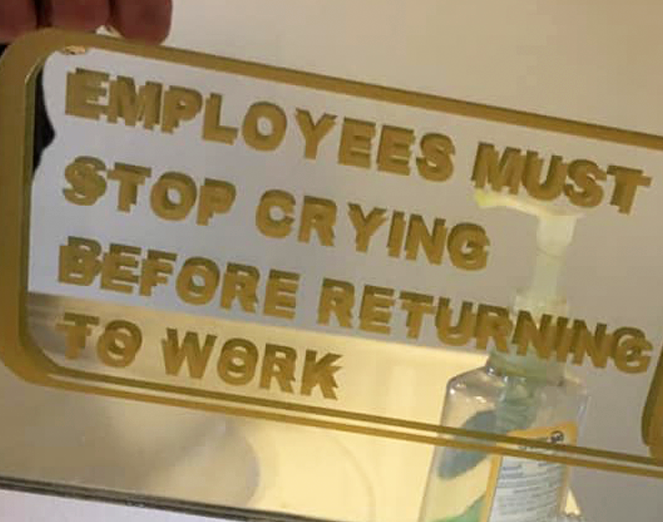

You’re confusing personality and morality. that’s a shitty way to put that, sorry.
Those are two separate things.
I never argued that a personality change couldn’t occur. Personality change in humans following a brain lesion from an injury is neuroscience 101.
That is not what this is.
I’m arguing that Fetterman’s support of things that contradict who he (still to this day, claims to be) are harmful to the people he is supposed to represent should not be excused as simply a consequence of his stroke.
Edit: So this ended up making me interested in just looking more into the neuroscience of morality.
Damage to the prefrontal cortex is associated with an increase in utilitarian moral judgements. Damage to the prefrontal cortex increases utilitarian moral judgements(2008)
Damage to the amygdala (vs frontal) actually seemed to cause a breakdown of utilitarian moral behavior Breakdown of utilitarian moral judgement after basolateral amygdala damage
Here, in humans with selective bilateral BLA damage, we show breakdown in outcome-based sacrificial moral judgements. Across dilemmas, healthy control subjects routinely opt for sacrifice, but BLA-damaged subjects rarely select the sacrificial option, even when thousands of lives can be saved. Our data suggest that value-based decisions to sacrifice another human for “the greater good” critically depend on the BLA.
Participants with hippocampal damage were also less likely to choose the utilitarian option Hippocampal Damage Increases Deontological Responses during Moral Decision Making
We found that the patients approved of the utilitarian options significantly less often than control participants, favoring instead deontological responses—rejecting actions that harm even one person. Thus, patients with hippocampal damage have a strikingly opposite approach to moral decision making than vmPFC-lesioned patients.
Conversely, this 2022 paper found brain damage itself is not a significant predictor: Intact moral decision-making in adults with moderate-severe traumatic brain injury
Our results suggest that moral decision-making ability is not uniformly impaired following TBI. Rather, neuroanatomical (lesion location) and demographic (age at injury) characteristics may be more predictive of a disruption in moral decision-making than TBI diagnosis or injury severity alone. These results inform the neurobiology of moral decision-making and have implications for characterizing patterns of spared and impaired cognitive abilities in TBI.
A 2025 study looking at both frontal and non frontal brain damage found that individuals with brain damage did indeed seem to make incorrect judgments about intention and blame worthyness and we’re more likely to be punitive to an antagonist in scenarios they were presented compared to healthy controls. They also found in that in this scenario moral judgment ratings did not differ between frontal and non‐frontal lobe damage (but note a small sample size of frontal lobe damage). Impact of brain damage on moral judgment
This wasn’t a study of brain damage, but really interesting in terms of difference in morality networks of conservative vs liberals:
They discovered that a general network of brain regions was involved in judging moral violations, like cheating on a test, in contrast with mere social norm violations, such as drinking coffee with a spoon. What’s more, the network’s topography overlapped strikingly with the brain regions involved in theory of mind. However, distinct activity patterns emerged at finer resolution, suggesting that the brain processes different moral issues along different pathways, supporting a pluralist view of moral reasoning. The results, published in Nature Human Behaviour, even reveal differences between how liberals and conservatives evaluate a given moral issue.
Mounting evidence from survey and behavioral experiments suggests that liberals (progressives) are more sensitive to the categories of care/harm and fairness/cheating, which primarily protect the rights and freedoms of individuals. Conservatives, in contrast, place greater emphasis on the loyalty/betrayal, authority/subversion, and sanctity/degradation categories, which generally operate at the group level.
“Indeed, our results provide evidence at the neurological level that liberals and conservatives have complex differential neural responses when judging moral foundations,” Weber explained. That means individuals at different points along the political spectrum likely emphasize completely different values when evaluating a particular issue.
If it could be shown that following his stroke and recovery, his brain for example re-wired to function in a morally conservative way, it would makes him less culpable for his actions, but it also raises an interesting question. If voters elected a Democrat who then “became a conservative,” should he have considered stepped down because he could no longer represent the people that elected him?













Sameish. I thought soap was supposed to damage it. I boil water, use a metal spatula to help lift anything stuck on there, dump the water, wipe it dry, then add oil and wipe it one more time and leave it on the stove so it’s ready to use again.
I’ll be honest, I still don’t really understand what “season” means, but I’ve been doing that several times a week for like ~7 years now without any issues (that I’m aware of, I guess).